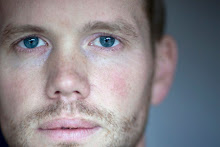At some point during the performance, the audience will be invited to follow the performers, out of the theatre and into the streets that surround Huis a/d Werf. The performers will act as a sort of tour guides, describing the strangeness of a series of places that circumscribe the Huis. Working here, I usually cycle back to my house through the streets that João and Yen Yi-Tzu’ walk included and I must say that most of the places that they took me through had never grasped my attention. I had never realized the unusual, absurd or downright unbelievable character of the objects, street corners and abrupt public spaces that I was invited to look at in different light. Even if this piece can be described as a guided tour to some extent, the way in which the performers speak does not reproduce the style of your typical city-tour guide. It adopts a unique language, both naïve and abstract, that describes the urban environment in ways that challenge preconceptions and invite the audience to bring their own imagination into play. We could say, in a more technical way, that the performance allows the audience members to experience the mechanisms of hope. This is, at least, the way in which João likes to describe his intentions. And I think that with the usage of precise and ingenious theatrical devices, he fully succeeds in his goals. This performance is both uncomplicated and profound and it manages to deliver an experience that is aesthetically pleasing and thought-provoking at the same time. True to their own artistic quest, the performers triumphantly stay away from the superficiality of entertainment and the dryness of over-the-top intellectual art, while creating a deep and enjoyable experience for the people that venture with them into the streets. Art theorists often celebrate the capacity of art to trigger changes in the perception of the audience. And this inspiring work, in my opinion, clearly accomplishes this goal in a subtle and powerful way.
Friday, May 21, 2010
The premiere of "We Hope You (or why there are no butterflies in winter)"
When writing about the performances of Festival a/d Werf, a dilemma I often face refers to how much I should reveal about them. If I write too much, I might unintentionally blow the surprises they have in store for the audience. But then I think that if people knew what awaited them, they would certainly not miss a chance to see the performances. This is the case for João Evangelista’s We hope you (or why there are no butterflies in winter), a work that premiered yesterday evening at Huis a/d Werf. If you don’t want the surprise to be ruined for you, then take this sentence as a spoiler alert and don’t read beyond this point.
Subscribe to:
Post Comments (Atom)



No comments:
Post a Comment